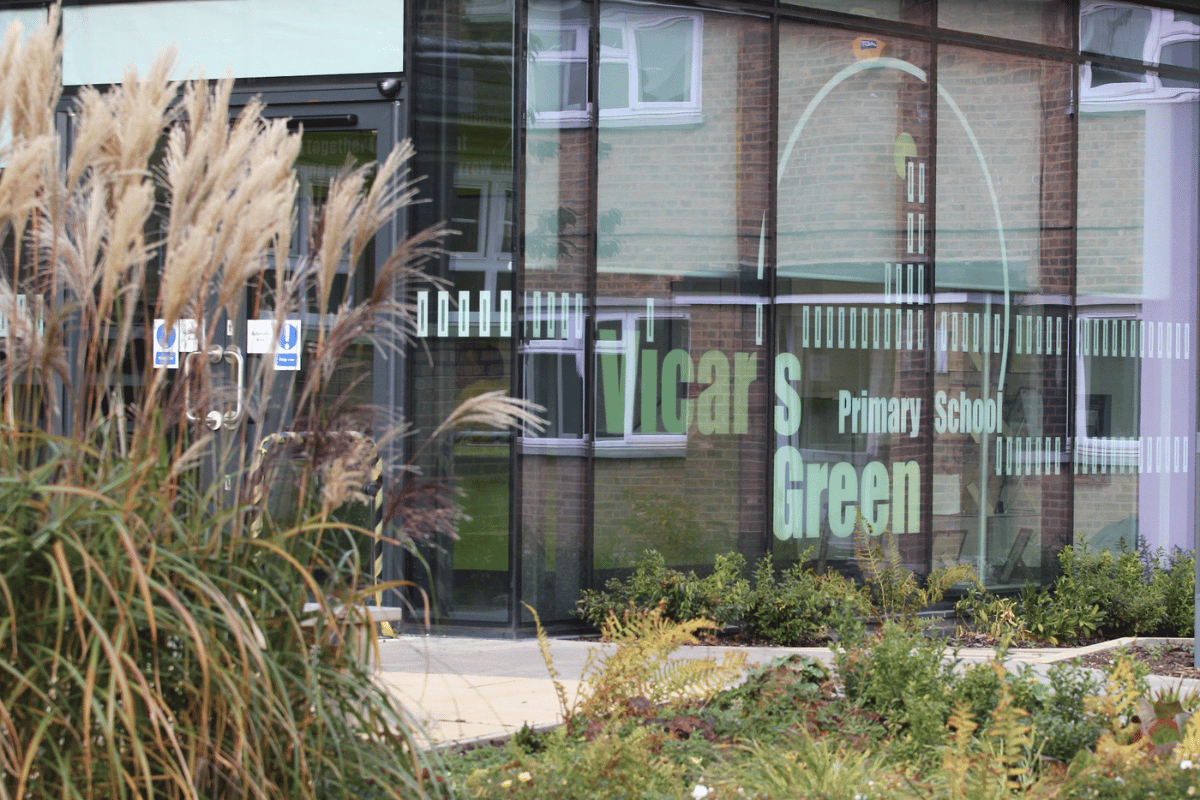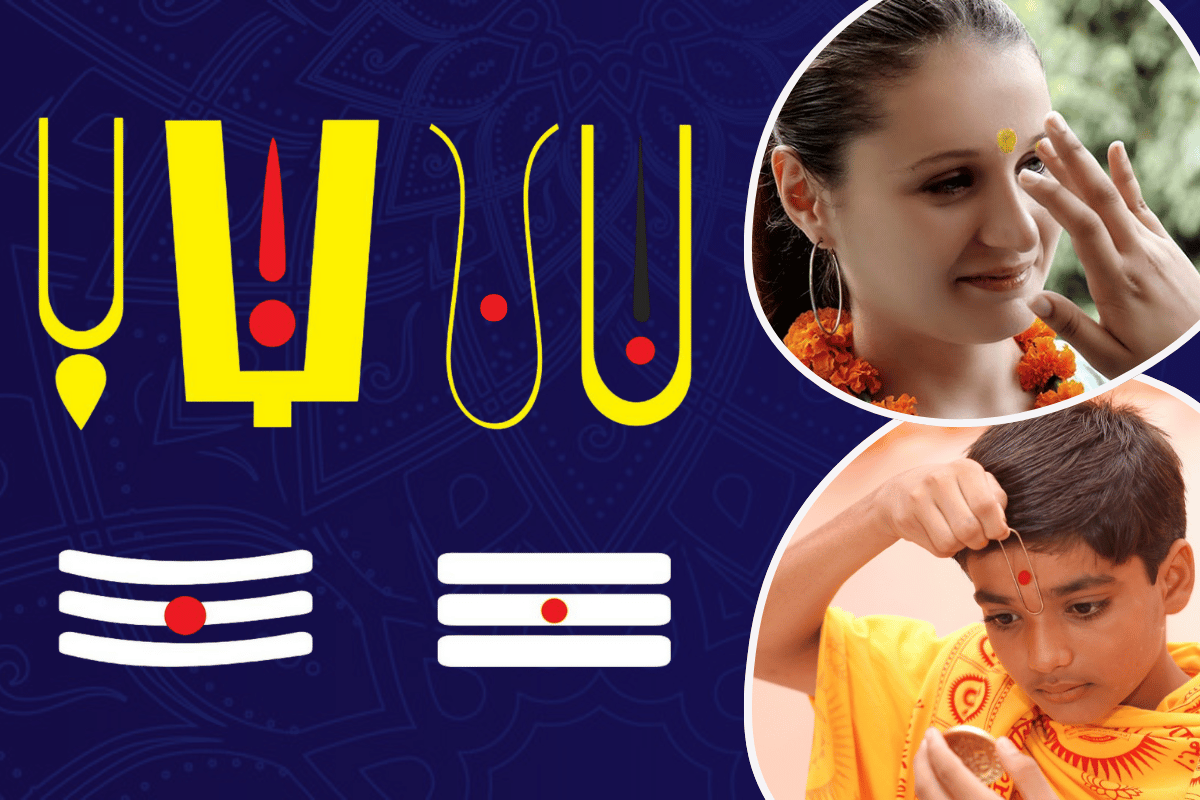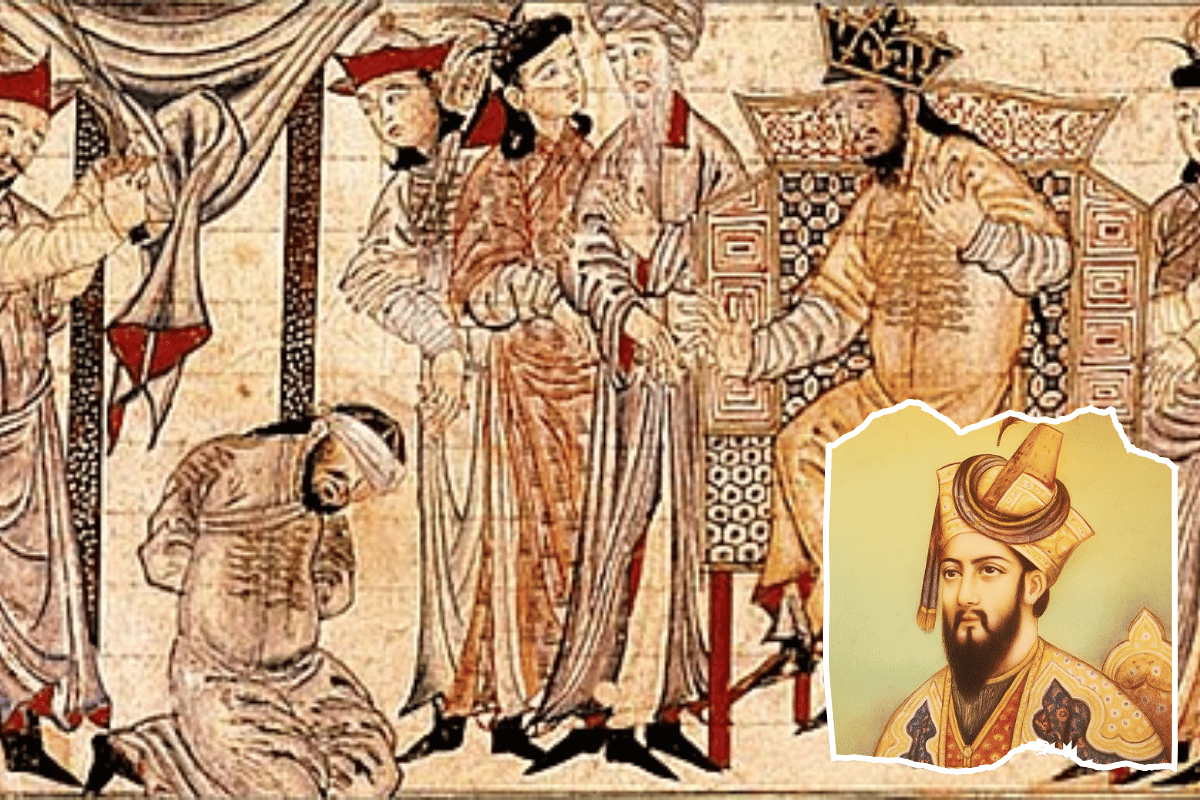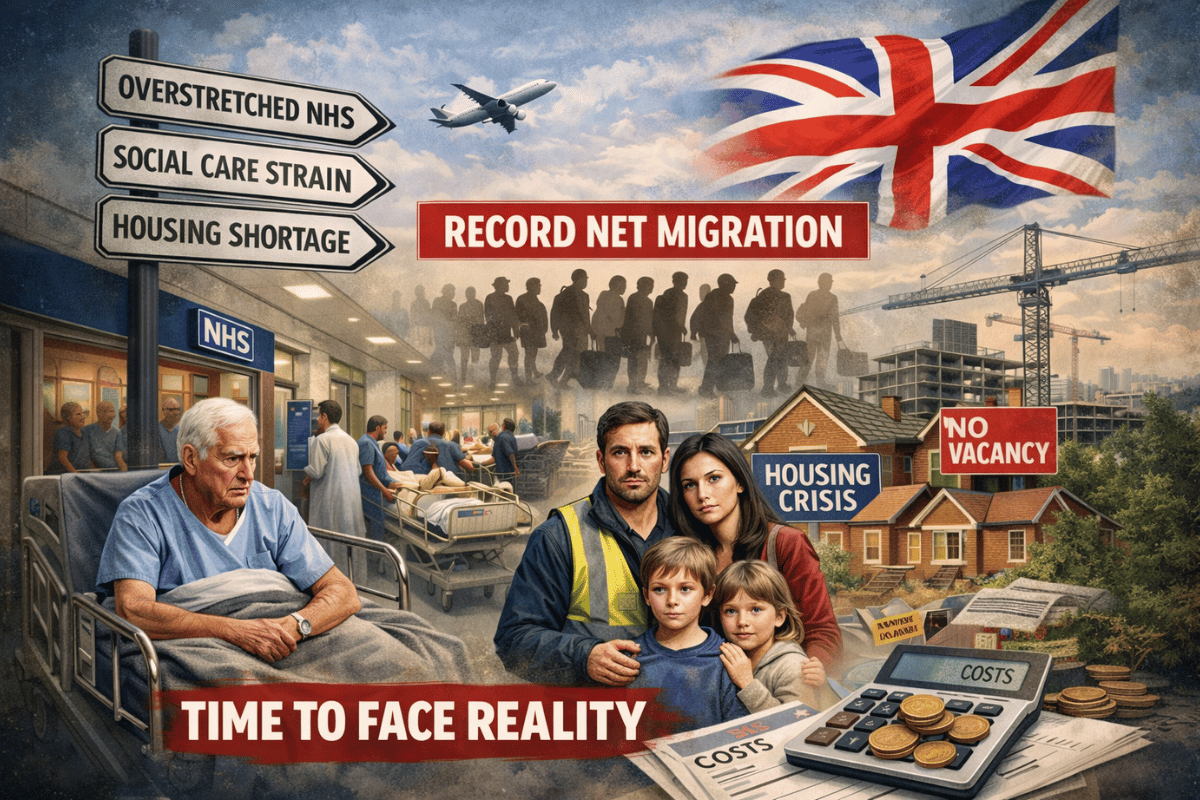
One would be forgiven for assuming that the political scene in the far-flung reaches of Scotland is no different from the rest of the UK. After all, the UK is the first major Western power led by a Hindu prime minister. Scratch beneath the surface, however, and one discovers a complex and worrying web of politically condoned Hinduphobia and a Hinduphobic glass ceiling.

Scratching that surface involves understanding the contextual commonalities and differences between Scotland and the rest of the UK when it comes to Hindus, in particular Hindus of Indian origin.
Commonalities include the fact that Hindus have lived in Scotland for many decades now. They are high tax-paying citizens with few demands on the system, and contribute significantly to the economy, with very low crime rates. They are linguistically and culturally highly diverse, and, like the rest of the UK, are pluralistic, peaceful, and highly integrated members of Scottish society.
The experience of Hinduphobia, or anti-Hindu hate, follows similar themes and patterns to the rest of the UK. Firstly, Hinduphobia is likely to be under-reported and under-documented, as it is elsewhere in the country. Secondly, the Scottish population are exposed to the same anti-Hindu and anti-India media propaganda houses as the rest of the UK; these include the British Broadcasting Corporation, The Guardian, as well as foreign sources including the New York Times, Reuters, Sky News, Al Jazeera, The Financial Times, France24 and many more. Thirdly, the gaslighting, strawman and intimidatory tactics used to silence Hindus in the rest of the UK are applied in Scotland as well. Various examples exist, some high profile, some unreported.
For example, professional non-Hindu organisations successfully managed to intimidate and cancel awareness campaigns highlighting the genocide of Kashmiri Hindus, with organiser’s employers approached with fake and biased narratives intended to curb the free speech of the individuals involved. In recent years, Scotland’s First Minister is said to have openly implied that Hindus may be biased against Muslims, in the context of an issue with nursery admissions. This, coming from a Minister who has been pushing forward laws about hate speech. If he felt he was discriminated against, it was sufficient to say that he felt discriminated against because of his religion, rather than directly blaming Hindus.
Fault lines between different dharmic and Indic factions are deliberately played upon in Scotland for the purposes of vote-bank politics, just as in the rest of the UK and even the world. Kashmir and Khalistan are given political leverage in Scotland just as in England; one need only note the policies of the Labour Party and SNP, who are strong contenders in Scotland. One also needs to look no further than the X (formally Twitter) accounts of SNP politicians and who they appear to follow. It is noteworthy that pro-Khalistan extremists recently prevented the Indian High Commissioner from entering a Gurudwara in Glasgow, proudly and openly boasting of their success in preventing their entry on a video that has now gone viral. It remains to be seen whether the Scottish police and UK government identify the men in these videos so that they can supply the Indian Government with their details, as per India’s request to be given the details of Khalistani radicals throughout the diaspora in its attempts to address the problem with Khalistani terrorism. Indeed, it is well known that some Gurudwaras in Scotland celebrate Khalistani terrorists as freedom fighters and some Gurudwaras also glorify these radicals by adorning their inner walls with their photographs. An investigation into Khalistani radicalism in Scotland and a strong zero-tolerance stance from India and Westminister is long overdue, in order to put enough pressure on the Scottish politicians in power who are no better than Justin Trudeau in this regard.
Lastly, evangelical activities that seek to eradicate indigenous faith and belief systems are rampant in Scotland. It is well known that people in prominent positions (such as that of national Clinical Director) have been involved in conversion activities in India – an immediate red flag for anti-Hindu bias.
Worrying also is the regime-change style narrative that evangelical networks are building up, about the tragic events in Manipur – essentially reducing a highly complex narrative into one where Hindus are vilified. Indeed, officials at the American Enterprise Institute have raised concerns about the Hinduphobic political framing of the events at Manipur and have highlighted that India does more for Christians worldwide (one only needs to look at India’s stance on Armenia) than countries that condemn it. The Manipur issue has been politicised to such an extent in Scotland that Scottish MPs, backed by various English MPs with Hindumisic and anti-India backgrounds, have tabled a parliamentary motion about it. Interestingly, the main drivers of this are MPs whose background of coming from a missionary family betrays a conflict of interest in working against Hindu faith and belief systems and a clear agenda to portray Hindus as the oppressors. What is even more telling, is the apparent lack of condemnation by these politicians, of the recent acute-on-chronic targeting and persecution of Christians in Pakistan.
Hindu groups in Scotland have been worried about using terms such as Jai Shri Ram, and Hindutva, because of the way in which these have been vilified. Many in Scotland do not know the term Hinduphobia (and even its possible origins, potentially dating as far back as 1866), and like other parts of the country, self-projecting individuals involved in Interfaith kitty parties do nothing to find out about and represent the difficult topics that Hindus need representation on, including hate speech, conversions and targeted grooming. There is, indeed, a censure and stigma associated with openly discussing these topics, and the victim-shaming of old-world faith and belief systems that are targets of conversion is no different to the rest of the UK, although in Scotland it does lead to a lack of documentation.
With regards the Leicester violence in recent years, hate speech terms such as “mushrik” have been openly used against Hindus, and the challenge in Scotland as in the rest of the UK is to reach a higher-level acknowledgement that terms such as heathen (when used in a derogatory sense), pagan (when used in a derogatory sense), mushrik, idol-worshipper, kaffir and many others are just as bad as “cow piss-drinker” and have no place in today’s modern society. Any book or faith and belief system that indoctrinates such hatred into the minds of individuals needs serious reform. Unfortunately, it still appears that the hegemony for what is and what is not considered hate speech does not lie with Hindus, who have effectively hit a Hinduphobic glass ceiling in this context and need to continue advocating their perspective.
Hindu education in schools and universities is another element of the lived experience of Hindus in Scotland that requires engagement and work to progress constructively, just as in the rest of the UK. Just as in the rest of the UK, much misinformation about Hinduism and India exists in the teaching system. Some of this is fed by biased media narratives and needs to be corrected.
The final problem, and similarity, with the rest of the UK is the manipulative, deliberate and wicked turning of “right-wrong” issues into “right-left” issues, whenever Hindus speak up. This has the effect of politicising and belittling the lived experience of Hindus, vilifying them, gaslighting them and ultimately curbing their free speech by intimidating them into silence. Fake narratives of Hindu extremism and right-wing Hindu bogeymen have found their way into Scottish government as well as academic institutions. Reports that aim to tackle radicalism in Scotland now tout that right-wing attitudes are of particular concern in this context – although the data and methodology used to reach this conclusion is unclear. If the conclusion of this report is based on public opinion, how have Hindus been consulted? Although Hindus have not been named – it sets a clear strategy to silence them in the same manner as most Hindus who peacefully stand up for what is right are silenced by their advocacy being deliberately and maliciously politicised to intimidate them into silence.
Contextual differences also exist when it comes to Hindus in Scotland.
The number of Hindus of Indian origin is fewer than in England although growing significantly. Lack of overall constructive political engagement with the Hindu community causes a lack of data, which in turn causes deprivation of resources; even with seemingly straightforward and justifiable tasks such as constructing temples to serve the needs of the growing population – there is a lack of clarity and transparency of how funds (be they central or council-based pots of money) intended on supporting minority inclusion, diversity, faith and belief, are actually allocated and distributed among the different minority communities. Scottish Hindus have also been hitherto under-represented in the political spheres. Politicians who say they represent them often turn a blind eye when it comes to anti-Hindu hate as well as narratives that fuel anti-Hindu hate, these narratives include Kashmir, Khalistan, and stories of minority victimhood in India (Manipur is included in this).
The need for better representation of Hindus in Scotland and a stronger system of support from Indian officials outwith Scotland (including the High Commissioner) has been raised, although it remains to be seen if Indian authorities have indeed learnt (the hard way) from the recent chasing away of Indian officials from Scottish Gurudwaras by Khalistanis, and start to strengthen ties with Scottish Hindus and Indians for mutual benefit and support. Indeed, Indian authorities would do well to take these matters extremely seriously and start giving Hindu representatives in Scotland adequate time, resources and support to address the needs of Scottish Hindus and Indians. Indeed, because the Scottish political scene appears to be anti-Hindu and anti-India, support from outwith Scotland is an important lifeline for Hindus.
Scottish independence (or separatism) also provides significant food for thought as it could result in a situation that is one step worse than the current state of affairs for some communities. The rest of the UK is looking to form stronger bonds with India given its rise on the world stage, post-Brexit. India and the surrounding nations matter to Hindus, being the land of their sacred geography and the fact that British Hindus are deliberately labelled and misappropriated as Hindu nationalists to shut them up. Despite England having relatively good diplomatic and socioeconomic relations with India, media narratives are oftentimes still very prejudiced against Hindus and India.
Scottish politicians appear not to have demonstrated strong or specific intentions of working with India – a relationship that could be incredibly vital for the Scottish economy on multiple fronts, particularly post-hypothetical Scottish independence. Therefore, one shudders to think of the tone of media narratives emanating from Scotland post-independence. Media narratives indoctrinate the minds of everyone that one comes into contact with and strongly affect the lived experience of Hindus throughout the world.
As it stands, Scotland is devolved from the rest of the UK and there are some unique aspects pertaining to living in Scotland and advocating for one’s rights. Interestingly, working groups seeking to prevent radicalisation now state that right-wing attitudes and non-violent extremism are of particular concern in Scotland – given the tactic of labelling Hindus as right-wing, this poses a massive concern about the free speech and human rights of Hindus in Scotland today. This too, in the context of bespoke Scottish hate crime and hate speech legislation (legislation that even the church and other religious groups raised concerns over), that effectively protects and emboldens perpetrators to build false narratives against intimidated and silenced victims. Scots law differs from English law, which means that it is harder for Scottish Hindus to access help and support from the rest of the UK when it pertains to Hindu issues.
The repercussions of Scottish devolution on Hindus and Indians – legislative and organisational isolation of Hindus from the rest of the UK, and further curtailments on Hindu human rights and free speech compared to the rest of the UK – are now being experienced in a very real, and worrying way. It does not take a genius to foresee what the plight of Hindus in Scotland could be, should the next step – Scottish independence – actually occur.
There has been much in the news recently about Hinduphobia and politically condoned Khalistani extremism in Canada, for which Trudeau has rightly come under scrutiny. After all, supporting terrorism and regime-change movements in other sovereign countries while ignoring the real local issues in one’s own backyard needs to be called out. However, it appears that Scottish politicians are looking across the Atlantic and taking a page out of Canada’s playbook when it comes to anti-Hindu hate and the manipulative use of diaspora politics. The current situation is a deeply concerning one. Despite the UK having a Hindu prime minister, Scottish devolution appears to have been the first step in turning Scotland into a wasted, woke pariah state. It beggars the question, what are high tax-paying Scottish Hindus, paying taxes for? In Scotland, it appears that taxes harvested from Hindus could be being used to their detriment, to fund nefarious back-door activities and policies that ultimately work to further deeply ingrain the institutionalised Hindumisia and Hinduphobic glass ceiling in Scotland.









